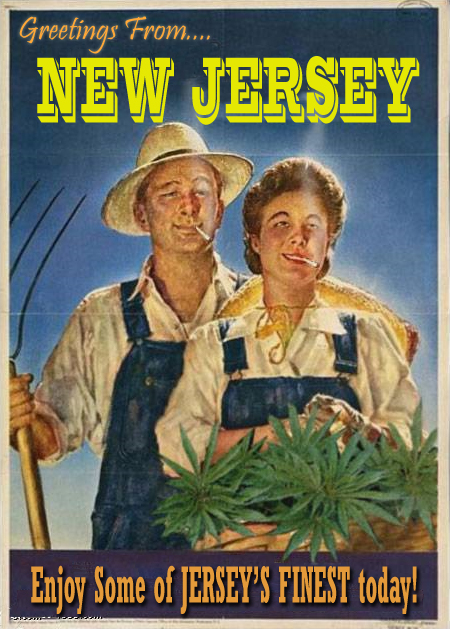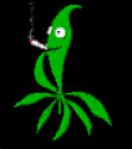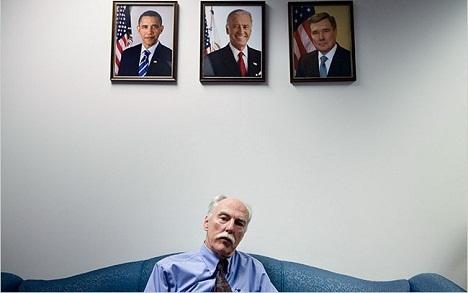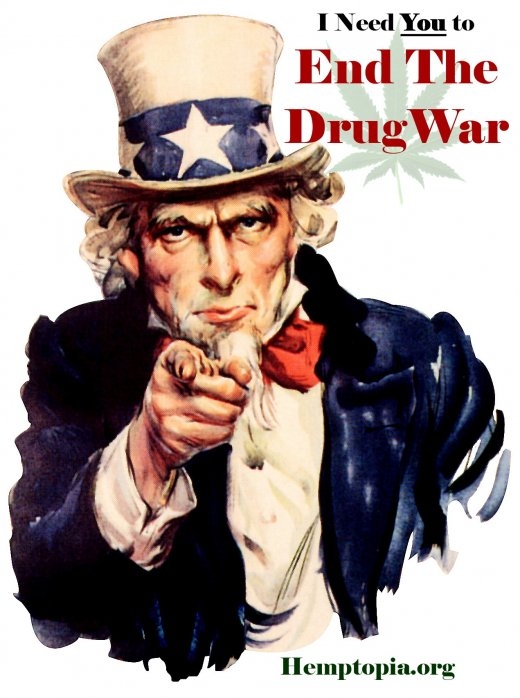
FREEDOMISGREEN: NJ Assemblyman Reed Gusciora is expected to introduce a bill this week to decriminalize the possession of up to 14 grams of marijuana by adults. A look at the Uniform Crime Report from the NJ State Police reveals some striking statistics for marijuana arrests. The 2009 report contains the most recent published data available, although preliminary data on 2010 points to an increase for cannabis violations in the region. In 2009 the Garden State arrested 26, 254 people for marijuana. Eight-five percent of the arrests (22, 439) were for possession of less than 50 grams. Currently, adults caught with anything from a joint to two-ounces are treated the same way; with a custodial arrest and a criminal prosecution. In 2009 New Jersey performed more arrests for marijuana than for all other drugs combined. Fifty-six percent of all drug possession arrests were for marijuana. The same year saw 3,815 arrests for Sale/Manufacture of marijuana. This is compared to 8,128 arrests for sale/manufacture of cocaine or opium products in 2009. Yet fewer NJ residents were arrested in possession of cocaine or opiates (14,609) than for marijuana (22,439). A conclusion could be drawn that enforcement of cannabis prohibition laws in New Jersey is focused on the individual user rather than those selling. This is different than for other drugs. MORE
RELATED: According to the Pennsylvania Uniform Crime Reporting System there were 25, 635 adult arrests for marijuana prohibition related offenses in 2009. About 75% were for possession. Sale and manufacturing accounted for 5,083 arrests and possession accounted for 20, 552. Whites were arrested more than African-Americans across the state. But the trend of a racial disparity to the arrests in Philadelphia continued. Of the 10, 661 African-Americans arrested for marijuana violations in Pennsylvania statewide during 2009 about half were arrested by Philadelphia city police, a total of 5,158 people. MORE
RELATED: Pennsylvania state Senator Pat Vance (R-31) chairs the Public Health and Welfare Committee where the medical marijuana bill, SB 1003, has been assigned. And the bill may be staying right there. Senator Vance’s Chief of  Staff, Amy Bolze, said that there is currently no intention to scheduling any public hearings. Further, she stated that there is no intention to bring the bill before the committee for a vote. This leaves SB 1003 in a state of suspended animation, where it could remain for the entire legislative session. A Franklin & Marshall poll in 2010 indicated that 81 percent of Pennsylvania residents support having legalized access to marijuana for qualifying residents. Over 40 percent of the respondents in that poll described themselves as “conservative.” MORE
Staff, Amy Bolze, said that there is currently no intention to scheduling any public hearings. Further, she stated that there is no intention to bring the bill before the committee for a vote. This leaves SB 1003 in a state of suspended animation, where it could remain for the entire legislative session. A Franklin & Marshall poll in 2010 indicated that 81 percent of Pennsylvania residents support having legalized access to marijuana for qualifying residents. Over 40 percent of the respondents in that poll described themselves as “conservative.” MORE
RELATED: Candid and cantankerous, Dr. Thomas McLellan has never been one to sit still at meetings or tailor his rebellious opinions about addiction to please his audience. A Washington insider he ain’t, and damn proud of it, as he might say of himself. So McLellan was wary about heeding Vice President Joseph Biden’s personal call in 2009 to join the Obama administration as deputy drug czar. If one of his own sons hadn’t died of an intentional overdose of anti-anxiety meds and alcohol three months earlier even as another son was in residential treatment for alcoholism and cocaine addiction, he may have refused.
But facing the failure of the nation’s war on drugs in his very own home inspired McLellan to take a break from his job as  professor of psychiatry at the University of Pennsylvania School of Medicine and scientific director of the Treatment Research Institute in Philadelphia. Equally persuasive was the fact that his boss, Drug Czar Gil Kerlikowske, the former Seattle police chief, had already announced that he was retiring the phrase “war on drugs” after 30 years because it implied that the government was doing battle against addicts themselves rather than the disease of addiction. It just so happens that McLellan has devoted his academic career to pioneering the disease model, doing as much as any other single individual to replace moralism with science in society’s view of alcoholism and drug addiction.
professor of psychiatry at the University of Pennsylvania School of Medicine and scientific director of the Treatment Research Institute in Philadelphia. Equally persuasive was the fact that his boss, Drug Czar Gil Kerlikowske, the former Seattle police chief, had already announced that he was retiring the phrase “war on drugs” after 30 years because it implied that the government was doing battle against addicts themselves rather than the disease of addiction. It just so happens that McLellan has devoted his academic career to pioneering the disease model, doing as much as any other single individual to replace moralism with science in society’s view of alcoholism and drug addiction.
In the end, his stint as Washington insider was perhaps shorter than even he might have predicted. McLellan lasted only a year plus change—but it was a key year, with health-care reform (the Patient Protection and Affordable Care Act) on the move and the Mental Health Parity and Addiction Equity Act enacted in 2010. Now back at Penn directing the new Penn Center for Substance Abuse Solutions, the folksy, moustachioed 62-year-old professor-activist is trying to get the private sector behind his campaign to treat substance abuse as a chronic illness. McLellan compares America’s too-little, too-late approach to the treatment of addiction—the “hitting bottom” scenario—to allowing a diabetic to lose a foot before addressing their diet. MORE

![]() RADIO TIMES: It’s been 40 years since President Nixon declared a war on drugs. Now, four decades later, two reports conclude that the war has been a failure. The Global Commission on Drug Policy, which is made up of former heads of state, a former secretary general of the United Nations, and business and cultural leaders, says that the war on drugs has had “devastating consequences for individuals and societies around the world.” A group of former law enforcement officials have also released a report criticizing the Obama administration for continuing to follow the ineffective drug policies of the past. Today, where do we stand in the drug war? And what have we learned and lost in the 40 year battle? Our guests are THOMAS McLELLAN, former deputy drug czar for the Obama administration and the Director of the Penn Center for Substance Abuse Solutions and NORMAN STAMPER, former Seattle police chief and member of LEAP, Law Enforcement Against Prohibition.
RADIO TIMES: It’s been 40 years since President Nixon declared a war on drugs. Now, four decades later, two reports conclude that the war has been a failure. The Global Commission on Drug Policy, which is made up of former heads of state, a former secretary general of the United Nations, and business and cultural leaders, says that the war on drugs has had “devastating consequences for individuals and societies around the world.” A group of former law enforcement officials have also released a report criticizing the Obama administration for continuing to follow the ineffective drug policies of the past. Today, where do we stand in the drug war? And what have we learned and lost in the 40 year battle? Our guests are THOMAS McLELLAN, former deputy drug czar for the Obama administration and the Director of the Penn Center for Substance Abuse Solutions and NORMAN STAMPER, former Seattle police chief and member of LEAP, Law Enforcement Against Prohibition.
